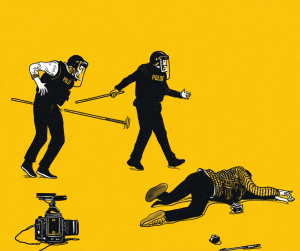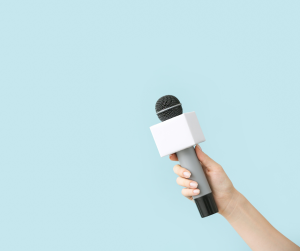What does AI mean for the future of journalism and media viability? In its latest brief, UNESCO explored the key challenges of AI for journalism and the industry and included a series of recommendations for an ethical AI. We talked to the author, Dr. Anya Schiffrin, director of the Technology, Media, and Communications specialisation at Columbia University’s School of International and Public Affairs (SIPA) and a senior lecturer. For Schiffrin, the media must collectively defend their interests in order to survive in the age of AI.
What is the impact of AI on media business models?
Anya Schiffrin: The Large Language Models (LLM) are revolutionising search. Tech giants like Google and Meta didn’t pay much for the content they disseminated and profited from online, but they did send some of the traffic back to the publishers via search. Now with LLM, AI makes it possible to take all this content and regurgitate it, without creating any traffic to news websites. There’s two parts of this problem. The first is that companies like OpenAI trained their models on journalism content without paying for it and in the future, they are going to need up-to-date information, so they should be paying for that as well. The second is that these companies have followed the path taken by Google, which is making deals with some of the big publishers, while excluding the smaller publishers. There will be times when they need news from local sites and smaller publishers are going to be at the back of the queue in terms of payment.
When signing a deal with OpenAI, Axel Springer talked about “AI empowered journalism”. Is this deal a good example to follow?
These deals are all covered by non-disclosure agreements so I can’t tell whether they are good deals, but I think what publishers are afraid of is what happened with Facebook, where they became very dependent on them and therefore lost a lot of autonomy. My advice to publishers is: don’t sign one deal with one company in perpetuity. These deals should be short-term, so that they can be renegotiated.
A checklist for publishers
In this article published on Poynter in March 2024, Dr. Schiffrin explains that LLMs need unique, contextual, reliable content, as well as images and videos. The quality of content is essential and should create an opportunity for publishers to negotiate good licensing deals.
In your piece entitled “To sign or to sue?” you also advise media outlets to get together, whether it is to sign with or to sue AI companies.
What I’m seeing happening in the US is similar to the rest of the world, whereby deals are being signed with a few big players. OpenAI doesn’t want everybody, it’s more convenient for them to find one publisher in each market and make a deal with them. The Danish case is interesting because they gave OpenAI an ultimatum: you have to negotiate with all of us collectively or you’re not allowed to use our content. This is what I’ve been saying for a couple of years now, collective bargaining is the only way to go.
Danish media vs. Open AI
“Our content is NOT free publicly available information. Our content is our business,” wrote Karen Rønde. On 11 June 2024, the Danish Press Publications’ Collective Management Organisation (DPCMO) announced that if OpenAI refused to sign an agreement with their association, the DPCMO would sue the company under Danish copyright laws. The publishers’ organisation demanded financial compensation for the use of their content, and gave OpenAI a year to respond. The AI firm is already involved in multiple lawsuits due to infringement of copyright legislations all over the world. It tends to ignore smaller countries when concluding licensing deals, which is why Denmark’s case is so important: if publishers can win over huge AI firms, it can inspire other media outlets in other smaller countries to do the same.
The European Union passed legislation on copyright in 2019, but we see how difficult it is now to implement it and to agree on a “fair share” for journalists. How do we value content created by journalists?
There’s a whole lot of ways of valuing news: from the inputs, the outputs, the revenue made from advertising, the percentage of the large language model queries that are news related. Think about music licensing, streaming, about how news outlets sell advertising… There’s all sorts of ways that people value news all the time. The problem is a power problem: how do we get these companies to agree to pay?
Though it is illegal to infringe copyright…
The question of whether it is acceptable to take this intellectual property and put it into a large language model without paying for it varies from country to country. In the US, they believe in something called “fair use”, but in Europe and in the rest of the world, this notion is not really recognised. In Japan, there is no copyright protection for inputs into LLM. In the EU, the question is going to be how to implement the copyright directive strictly and consistently. My position is that taking journalistic content without permission and without paying for it is theft of intellectual property. “Fair use” 20 years ago meant you could photocopy two pages of my textbook and give it to students in Africa for free. But what is happening now is a huge monopoly taking huge amounts of material and planning to profit from it. That is completely different.
How do you see the election of Donald Trump impacting European journalism?
We’re expecting a lot more attacks on the press in the US and it’s going to be a very difficult time. I think that tech regulation—forcing these companies to pay—is unlikely. The fact that the US won’t be regulating tech will have a huge effect on the rest of the world and I think it’s going to make the role of Europe even more important because Europe has led the way on rights-based regulation. Europe has done better than anybody else in finding ways to regulate the large tech companies while still respecting rights and freedom of expression.
Source: EFJ




